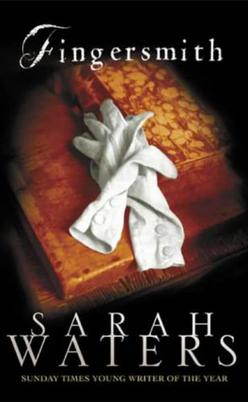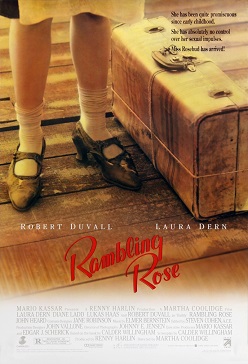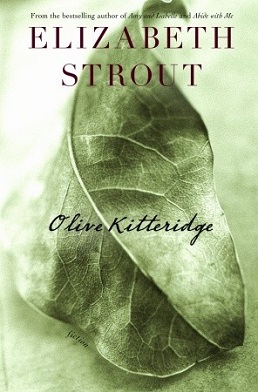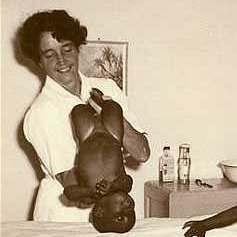
Dame Penelope Anne Constance Keith, is an English actress and presenter, active in film, radio, stage and television and primarily known for her roles in the British sitcoms The Good Life and To the Manor Born. She succeeded Lord Olivier as president of the Actors' Benevolent Fund after his death in 1989, and was appointed Dame Commander of the Order of the British Empire (DBE) in the 2014 New Year Honours for services to the arts and to charity.

Wives and Daughters, An Every-Day Story is a novel by English author Elizabeth Gaskell, first published in the Cornhill Magazine as a serial from August 1864 to January 1866. It was partly written whilst Gaskell was staying with the salon hostess Mary Elizabeth Mohl at her home on the Rue de Bac in Paris. When Mrs Gaskell died suddenly in 1865, it was not quite complete, and the last section was written by Frederick Greenwood.

Adam Dalgliesh is a fictional character who is the protagonist of fourteen mystery novels by P. D. James; the first being James's 1962 novel Cover Her Face. He also appears in the two novels featuring James's other detective, Cordelia Gray.
Hannah Campbell Grant Gordon is a Scottish actress and presenter who is known for her television work in the United Kingdom, including My Wife Next Door (1972), Upstairs, Downstairs (1974–75), Telford's Change (1979), Joint Account (1989–90) and an appearance in the final episode of One Foot in the Grave, broadcast in 2000. She has presented the Channel 4 lifestyle show Watercolour Challenge from 1998 to 2001 and played Ann Treves in David Lynch's 1980 film The Elephant Man. She is sometimes credited under her first married name of Hannah Warwick.
Molly Keane, née Mary Nesta Skrine, and who also wrote as M. J. Farrell, was an Irish novelist and playwright.

Fingersmith is a 2002 historical crime novel set in Victorian-era Britain by Sarah Waters.

Molly: An American Girl on the Home Front is a 2006 American made-for-television comedy-drama film. It is the third movie in the American Girl film series, and is based on the Molly: An American Girl book series written by American children's author Valerie Tripp. The first two movies in the series, Samantha: An American Girl Holiday and Felicity: An American Girl Adventure, were broadcast on The WB Television Network. However, following the WB/UPN merger, the series moved to the Disney Channel. The film premiered on the Disney Channel and on DVD from Warner Home Video on November 26, 2006. The film stars Maya Ritter in the titular role, with Molly Ringwald, David Aaron Baker, Tory Green and Genevieve Farrell in supporting roles.

White lady is a classic cocktail that is made with gin, Cointreau or triple sec, fresh lemon juice and an optional egg white. It belongs to the sidecar family, made with gin in place of brandy. The cocktail sometimes also includes additional ingredients, for example egg white, sugar, cream, or creme de menthe.

Joanna McCallum is an English theatre, film and television actress.

The Governess; or, The Little Female Academy by Sarah Fielding is the first full-length novel written for children. As such and in itself it is a significant work of 18th-century children's literature.

Rambling Rose is a 1991 American drama film set in Georgia during the Great Depression, starring Laura Dern and Robert Duvall in leading roles and Lukas Haas, John Heard, and Diane Ladd in supporting roles. Rambling Rose was directed by Martha Coolidge and written by Calder Willingham.

The Lottery Rose is a 1976 young adult novel by Newbery-winning author Irene Hunt. Though written at a middle-school reading level, this book is also suitable for high school readers due to high-interest subject matter.

Olive Kitteridge is a 2008 novel or short story cycle by American author Elizabeth Strout. Set in Maine in the fictional coastal town of Crosby, it comprises 13 stories that are interrelated but narratively discontinuous and non-chronological. Olive Kitteridge is a main character in some stories and has a lesser or cameo role in others. Six of the stories had been published in periodicals between 1992 and 2007.
Pembroke (1894) is a novel written by Mary E. Wilkins Freeman. It is set in the small US town of Pembroke, Massachusetts, in the 1830s and 40s. The novel tells the story of a romance gone awry and the dramatic events that follow, which entertain the residents of the small town for years after. As one of Freeman's first novels, Pembroke experienced great success in its time and, although it has only recently experienced a comeback in the academic sphere, it is known for being an exemplary piece of New England local color fiction.

The Bennet family is a fictional family created by the English novelist Jane Austen in her 1813 novel Pride and Prejudice. The family consists of Mr and Mrs Bennet and their five daughters: Jane, Mary, Catherine, Lydia, and Elizabeth, who is the novel's protagonist.

The Secret Garden is a 1975 British television adaptation of Frances Hodgson Burnett's 1911 novel of the same name. Adapted, produced and directed by Dorothea Brooking, it was first broadcast on BBC 1 in seven 30-minute episodes. This is the only BBC adaptation of the novel known to exist in its entirety. The 1952 adaptation is missing all eight episodes and the 1960 adaptation is missing three of its eight episodes.

Frances Mary Clutton-Brock, known as Molly Clutton-Brock, was a British therapist and youth worker, noted for helping physically disabled children. She and her husband developed a racially integrated farm and Molly developed centres in Rhodesia and Botswana where disabled children could receive physical therapy. She and her husband were expelled from Rhodesia for not supporting the white minority government.













